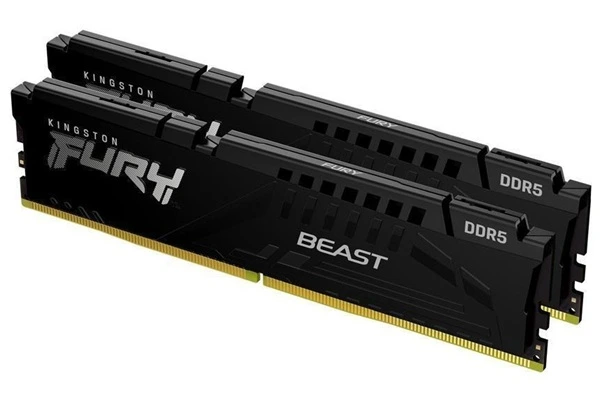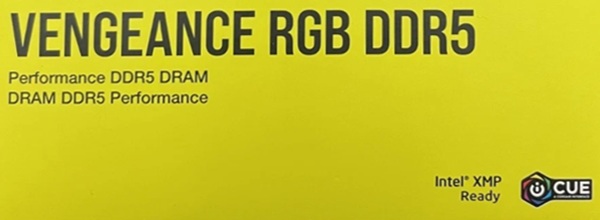
|
|
JEDEC, XMP & DOCP: Understanding Memory Standards
What's it all mean?

Intro
When building or upgrading a PC, memory (RAM) speed and compatibility play a
crucial role in performance. In this guide, we’ll break down the JEDEC, XMP, and DOCP
memory standards, their differences, and which one might be best for your build.
Memory packaging will be normally labeled to show that is intended for
Intel, AMD or both. It may not be labeled on the actual RAM sticks. However you can
lookup the part number on the manufacturers website to obtain this key detail.
 Corsair brand memory packaging indicating Intel compatibility.
Corsair brand memory packaging indicating Intel compatibility.1. JEDEC – The Industry Standard for Stability
Many PC builders have heard of XMP and DOCP, but may not have heard the term
JEDEC or did not know its definition. The JEDEC (Joint Electron Device Engineering
Council) sets the official memory speed and timing standards for DDR RAM. These
specifications ensure stability and compatibility across all systems. This is generally
the slowest option.
- Universal Compatibility – Works with all motherboards and CPUs.
- Stable and Reliable – No overclocking; operates at default voltages and timings.
- Lower Speeds – Sticks to conservative frequencies like DDR4-2133, DDR4-2666, DDR4-3200, or DDR5-4800.
- Downside: Lower performance due to conservative settings.
2. XMP – Intel’s Memory Overclocking Profile
XMP (Extreme Memory Profile) is an Intel-developed technology that allows
memory modules to run at speeds higher than JEDEC standards.
- Faster Performance – Enables RAM to run at higher speeds like DDR4-3600 or DDR5-6000+.
- Pre-Tuned Settings – Easily enabled via BIOS.
- Optimized for Intel – Designed for Intel CPUs and motherboards, may work with AMD systems.
- Downside: MOST but not all boards support XMP; the memory may require higher voltage.
1. Intel XMP RAM can be used on an AMD board but it may not be fully optimized. It may revert to a slower JEDEC speed.
2. Some memory will support both XMP and DOCP.
3. DOCP – AMD’s Memory Overclocking Profile
DOCP (Direct OverClock Profile) allows AMD systems to use Intel XMP profiles
by interpreting and applying them through AMD BIOS settings.
- Works Like XMP – Allows AMD users to run RAM at higher speeds.
- Easy to Enable – Accessible in BIOS memory settings.
- Optimized for Ryzen CPUs – Especially effective for AMD Ryzen systems.
Which One Should You Use?
| Feature | JEDEC | XMP (Intel) | DOCP (AMD) |
|---|---|---|---|
| Compatibility | All systems | Intel motherboards | AMD motherboards |
| Speed | Standard (e.g., DDR4-3200) | Higher (e.g., DDR4-3600+) | Higher (e.g., DDR4-3600+) |
| Stability | Most stable | May need extra voltage | May need extra tuning |
| Overclocking | No | Yes | Yes |
| Ease of Use | No settings required | Enabled via BIOS | Enabled via BIOS |
Final Recommendation:
- Use JEDEC if stability is your top priority (e.g., business or workstation builds).
- Enable XMP if you have an Intel CPU and want better performance.
- Use DOCP for AMD Ryzen systems to get the most from high-speed RAM.
Always run a memory stability test (like MemTest86) after enabling XMP or DOCP to ensure your system remains stable.
Final Thoughts
Choosing the right memory profile can significantly boost your PC’s
performance without complex manual overclocking. Whether you're focused on
stability with JEDEC, speed with XMP, or AMD compatibility with DOCP,
understanding these profiles will help you make an informed decision for your
next build.